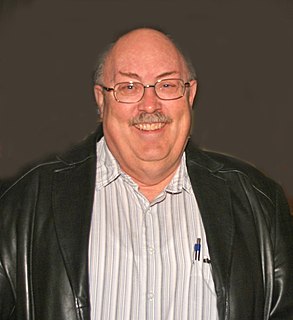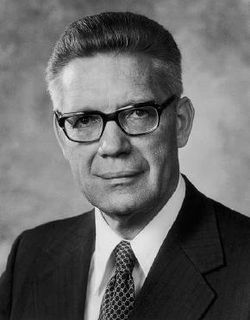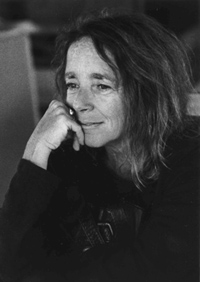A Quote by Ezra Taft Benson
The Book of Mormon offers so much that broadens our understandings of the doctrines of salvation. Without it, much of what is taught in other scriptures would not be nearly so plain and precious.
Related Quotes
Regular reading of and talking about the Book of Mormon invite the power to resist temptation and to produce feelings of love within our families. And discussions about the doctrines and principles in the Book of Mormon provide opportunities for parents to observe their children, to listen to them, to learn from them, and to teach them.
One area of the Book of Mormon that does bother some is what they see as anachronistic doctrine; that the Book of Mormon has Christian doctrine prior to the coming of Christ; that it has seemingly New Testament doctrines appearing centuries before Jesus arrives, and it seems to be representing a form of Christianity existing in the New World where there doesn't seem to be much evidence of that archaeologically. Christianity is invisible in the New World prior to the coming of Columbus, and so those things seem like clear anachronisms to people looking at it in that way.
Salvation in its true and full meaning is synonymous with exaltation or eternal life and consists in gaining an inheritance in the highest of the three heavens within the celestial kingdom. With few exceptions this is the salvation of which the scriptures speak. It is the salvation which the saints seek. (Mormon Doctrine, 2nd ed., Salt Lake City: Bookcraft, 1966, p. 670.)
How badly I wanted to belong as I had when I was a young Mormon girl, to be simply a working part in the great Mormon plan of salvation, a smiling exemplar of our sparkling difference. But instead I found myself a headstrong Mormon woman staking out her spiritual survival at a difficult point in Mormon history.
Perhaps the greatest discovery of my life, without question the greatest commitment, came when finally I had the confidence in God that I would loan or yield my agency to him-without compulsion or pressure, without any duress, as a single individual alone, by myself, no counterfeiting, nothing expected other than the privilege. In a sense, speaking figuratively, to take one's agency, that precious gift which the scriptures make plain is essential to life itself, and say, "I will do as you direct," is afterward to learn that in so doing you possess it all the more.
Some, in their curiosity, will say, "But you Mormons have another Bible! Do you believe in the Old and New Testaments?" I answer we do believe in the Old and New Testaments, and we have also another book, called the Book of Mormon. What are the doctrines of the Book of Mormon? The same as those of the Bible.
A good analogy [Charlie Hebdo] in lots of ways is "South Park" - the hugely popular American cartoon show - and the things that the "South Park" creators have created, like "The Book Of Mormon," the Broadway musical. If I were a devout Mormon, I would be offended by a lot of things that go on in "The Book Of Mormon," right? It mocks mercilessly the pretensions to truth of Mormonism and the pretensions to virtue of Mormon missionaries.
Sometimes I feel like 'Avenue Q' or even 'Book of Mormon' might not have happened without 'Urinetown.' 'Urinetown' sort of paved the way, just in terms of what Broadway would accept in its houses. It just blows my mind, the stuff 'Book of Mormon' gets away with. It's way farther across the line than 'Urinetown' ever was.








































